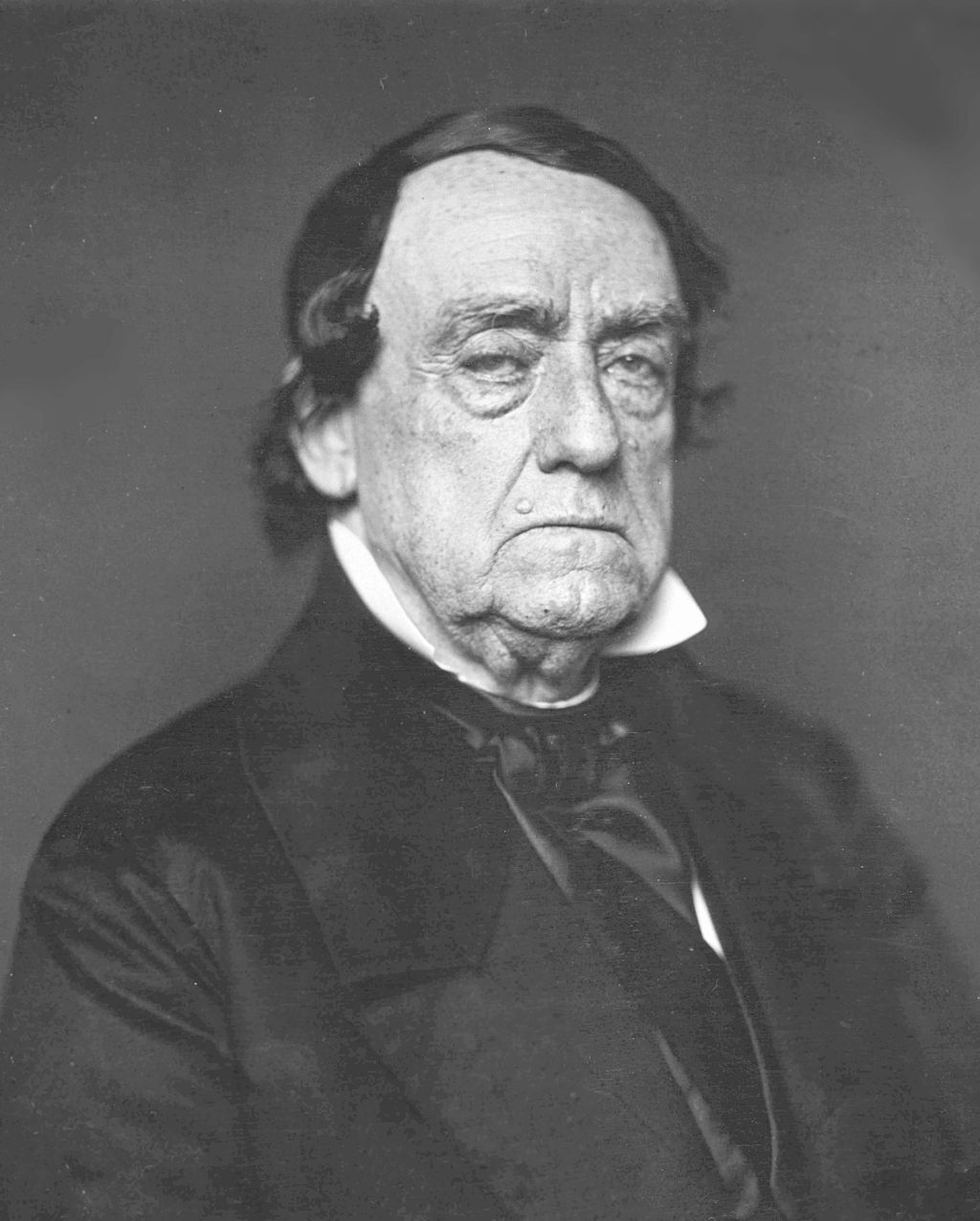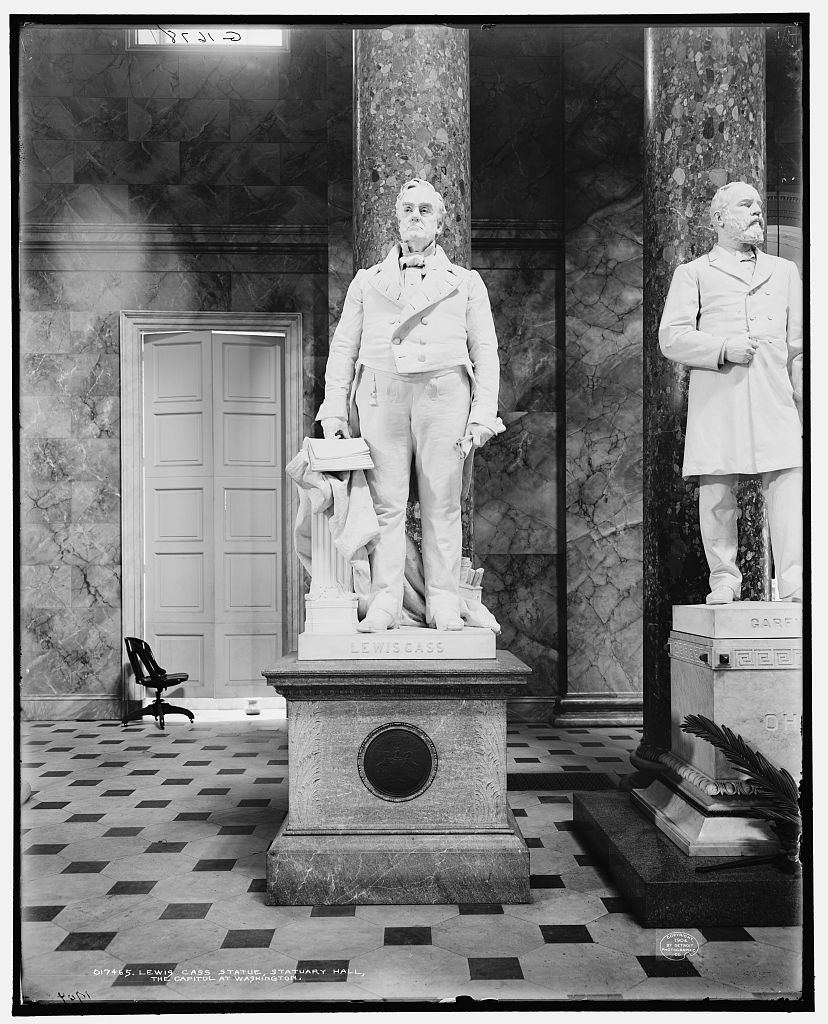Today, Ohio Freemasonry is made up of nearly 65,000 Masons in over 400 Lodges serving our communities throughout the state. Our fraternity has been active in our state since 1790, shortly after The Ohio Company settled Marietta, and in over 200 years it has grown into one of the largest Masonic memberships in the United States. Since its inception in 1808, a number of dedicated men have led the Grand Lodge of Ohio. One was Ohio’s third Grand Master, Most Worshipful Brother Lewis Cass. Cass was an American military officer, war veteran, politician, and a Freemason for over 50 years. He was a United States Senator, a presidential candidate, and a statesman who served in the Cabinets of two U.S. Presidents. He was also the first Grand Master of the Grand Lodge of Michigan, thus being the only Mason we know to have presided over two grand lodges.

Lewis Cass, c. 1855
Born to Serve
On October 9, 1782, Lewis Cass was born to a farming family in Exeter, New Hampshire. His father served in the Continental Army in the Revolutionary War and fought at Bunker Hill and later under General Washington. Growing up the son of an ardent patriot, Cass developed a genuine appreciation for his young nation early on. He attended Phillips Exeter Academy and in 1800 left with his family for the Northwest Territory of Ohio. They settled in Marietta, where Cass studied law and established a practice in Zanesville in 1802.
Founding the Grand Lodge
On December 5, 1803, he was initiated as an Entered Apprentice in what is now American Union Lodge No.1 at Marietta, marking the beginning of what was to be a decades-long journey through the Craft. He completed the Fellowcraft degree and was raised to Master Mason on May 7, 1804. The following year, he was admitted as a Charter member of Lodge of Amity No.105, now No.5, in Zanesville. In 1806, he served as the first Worshipful Master of the Lodge of Amity.
Most Worshipful Brother Cass was one of the Grand Lodge of Ohio founders, representing Lodge of Amity at the first meeting on January 4, 1808. He was elected Deputy Grand Master for the Grand Lodge of Ohio on January 5, 1809 and served as Grand Master for three consecutive years in 1810, 1811, and 1812.

Statue of Cass in the National Statuary Hall, Washington D.C.
Risking the Ranks
Most Worshipful Brother Cass was an early volunteer in the War of 1812, ultimately reaching the rank of Brigadier General. When he and his troops were surrendered to the British by General William Hull, Cass broke his sword rather than surrender it to the enemy. In 1813, he was appointed by President James Madison as civil Governor of the territory of Michigan, a post he held for nearly two decades. During his tenure as Governor, Cass affiliated with Zion Lodge No.1 in Detroit, Michigan, and served as the first Grand Master of the Grand Lodge of Michigan in 1826.
In 1831, Most Worshipful Brother Cass resigned his post as Governor to serve under President Andrew Jackson as his Secretary of War for the next five years. Following this position, he was appointed as the United States Ambassador to France until 1842. Ever committed to his brethren, he never let his political responsibilities interfere with his Masonic obligations, serving an additional term as Grand Master of Michigan in 1844 after returning from France.
Presidential Bids and Cabinet Service
Later in 1844, Lewis Cass ran as a presidential candidate on the Democratic ticket but lost on the 9th ballot to dark horse candidate James K. Polk. After losing the Democratic ticket, he successfully ran to represent the people of Michigan in the U. S. Senate, a position he would hold until his resignation four years later in a second bid for president in the 1848 election. He lost to Zachary Taylor and was promptly returned by the Michigan state legislature to the Senate, serving until 1857 when President Buchanan appointed him Secretary of State.
While his appointment was largely symbolic and a way for Buchanan to maintain stability in his Cabinet, Cass was happy to assume the role. As age and Washington politics wore on him, Cass relinquished his Cabinet position in 1860.
Death and Legacy
Following his resignation, Cass returned to Michigan, where he passed away in Detroit at the age of 84 on June 17, 1866. He has been commemorated in various ways, including a statue in the National Statuary Hall in Washington D.C., and is the eponym of Casstown, Ohio.
Curious to learn more about the history of Ohio Freemasonry? Read our blog on how Ohio Freemasonry got started and our most recent one celebrating our 214th Birthday as an organization!